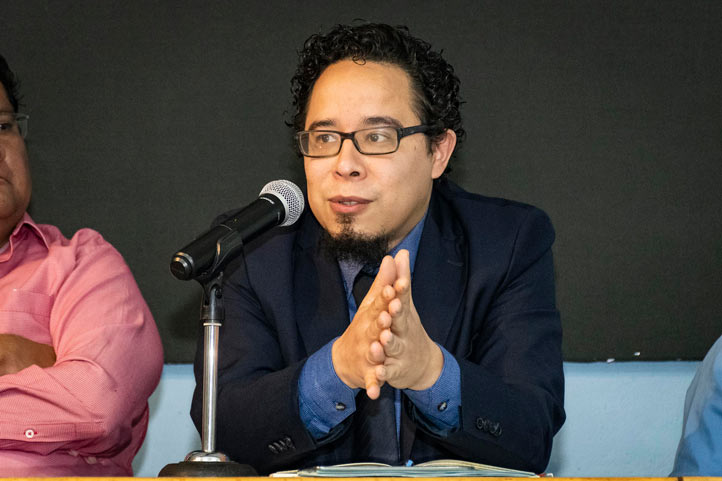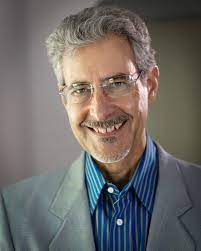-
Inicio
Del 20/11 al 22/11 -
Ubicación
Auditorio de Humanidades, campus PUCP
Presentación
Approximately three decades ago, a so-called “emotional turn” towards the affective dimension of individual and collective experiences spread throughout different fields of academic research. Evolutionary biology, neurosciences, psychology, social sciences, and culture disciplines give testimony of this newly awakened interest in the study of emotions, sentiments, affects, passions, moods, from their instinctive roots to their higher-level conscious forms. Researchers from both the Continental and Anglo-Saxon traditions have partaken in this turn.
But what are emotions? Martha Nussbaum holds that they are value- judgements, namely, the result of cognitive processes. Conversely, others contend that they are sui generis experiences, carriers of their own meaning and value. Contemporary debates revolve around the following questions: what is the nature and structure of emotions, which types of emotions are identifiable, which are or are not related to theoretical and practical experiences –and if they are, what does this relation mean–, how are they related to predicative and bodily expressions, what do they reveal
about ourselves and of how we perceive, what do we mean by collective emotions, whether they have a role in moral or political matters or whether they should be excluded from them, and so forth.
In general, with few exceptions, Modern philosophy and science favored a theoretical-objectivistic model of human experience, which relegated emotions to a purely subjective, irrational, animal dimension. As a consequence, the role of emotions in theoretical and practical life remained hidden, having been reduced to mere sensible pleasure and pain. Phenomenology and hermeneutics, which also retrieve and relive meditations stemming from ancient Greek philosophy and Asia, attempt to overcome the “de gustibus non disputandum” prejudice, according to which emotions –devoid of sense and motives– are deterministically caused by stimuli.
The PERUVIAN CIRCLE OF PHENOMENOLOGY AND HERMENEUTICS (CIphER) welcomes its members to participate in its 15th Journey of Phenomenology and Hermeneutics on this current topic. Prof. Anthony J. Steinbock from the STATE UNIVERSITY OF NEW YORK AT STONY BROOK will participate as keynote speaker. He is author of It’s Not About the Gift: From Givenness to Loving (2018), Limit-Phenomena and Phenomenology in Husserl (2017), Moral Emotions, Reclaiming the Evidence of the Heart (2014), Home and Beyond: Generative Phenomenology after Husserl (1995), among other publications; and Prof. Ignacio Quepons, from the Universidad Veracruzana (México), author of Jean Paul Sartre, la invención imaginaria de sí (2005), “Intentionality of Moods and Horizon Consciousness in Husserl’s Phenomenology”, “La fenomenología de los temples de ánimo en el legado inédito de Husserl: Notas para su sistematización”, “Atención y conciencia de los sentimientos: el temple de ánimo como trasfondoafectivo de la vida concreta”, “Apercepción de valor y tonalidad afectiva: Problemas de la fenomenología husserliana de los sentimientos”, among others.
Invitados internacionales

Ignacio Quepons
Professor at Universidad Veracruzana (Mexico), author of Jean Paul Sartre, la invención imaginaria de sí (2005), “Intentionality of Moods and Horizon Consciousness in Husserl’s Phenomenology”, “La fenomenología de los temples de ánimo en el legado inédito de Husserl: Notas para su sistematización”, “Atención y conciencia de los sentimientos: el temple de ánimo como trasfondo afectivo de la vida concreta”, “Apercepción de valor y tonalidad afectiva: Problemas de la fenomenología husserliana de los sentimientos”, among other articles.

Anthony Steinbock
Universidad de Nueva York en Stony Brook, autor de It’s Not About the Gift: From Givenness to Loving (2018), Limit-Phenomena and Phenomenology in Husserl (2017), Moral Emotions, Reclaiming the Evidence of the Heart (2014), Home and Beyond: Generative Phenomenology after Husserl (1995), entre otras obras,
Programa
Wednesday 20
Inaguración
Tensiones y paradoja del amor romántico en la modernidad tardía
Danilo Tapia (PUCP)
El acontecer del Amor. Una mirada al 'accidente', desde Franz Rosenzweig y Catherine Malabou
Juan Gonzales (PUCP)
Dolor y autoexplotación en la era digital
Dune Valle (U. Sergio Arboleda-Colombia)
Discusión
Coffe break
Aspectos de la vida afectiva y volitiva en la fenomenología de Husserl
Ignacio Quepons (U. Veracruzana-México)
Discusión
Coffe break
The Schema of the Heart
Anthony Steinbock (State U. of New York, Stony Brook-USA)
Discusión
Cóctel Inauguración (Auditorio de Humanidades)
Thursday 21
La relación (no racional) entre el ser humano y el mundo. Entre la tranquilidad y el desamparo
Maribel Cuenca (PUCP)
On the distinction between Stimmungen and Existential Feelings
Marcelo Vieira Lopes (U. Federal de santa Maria-Brasil)
Discusión
Coffe Break
La emoción como autoconciencia prerreflexiva mágica en la fenomenología satreana
Juan Pablo Cotrina (UNMSM - UPCH)
In infancy, the child is attracted to language': Merleau-Ponty on the social - affective origins of speech
Hayden Kee (Fordham U. - USA)
Discusión
Coffe Break
Emociones y auto-conocimiento
Pablo Quintanilla(PUCP)
Emociones: entre la vida instintiva y la vida racional
Rosemary RP de Lerner (PUCP)
Discusión
Friday 22
Martín Rosado (UNMSM)
Martín Rosado (UNMSM)
Camila Ramirez (U. de Chile)
Camila Ramirez (U. de Chile)
Mariana Chu (PUCP)
Mariana Chu (PUCP)
Discusión
Coffe Break
Ignacio Quepons (U. Veracruzana-México)
Ignacio Quepons (U. Veracruzana-México)
Discusión
Coffe Break
Anthony Steinbock (State U. of New York, Stony Brook-USA)
Anthony Steinbock (State U. of New York, Stony Brook-USA)
Discusión
Movilidad a Museo
Cóctel Clausura (Museo Larco)
Actas
La ambigüedad fenomenológica del eros: arquitectónica y performatividad
La relación (no racional) entre el ser humano y el mundo. Entre la tranquilidad y el desamparo
"En la infancia, el niño está atraído por el lenguaje”: Merleau-Ponty y los orígenes socio-afectivos del habla
Emociones: entre la vida instintiva y la vida racional
Tensiones y paradoja del amor romántico en la modernidad tardía
Entrevistas
¿Deseas más información?
Déjanos tus datos en este formulario y nuestro equipo se pondrá en contacto contigo para darte mayor información sobre este evento.
